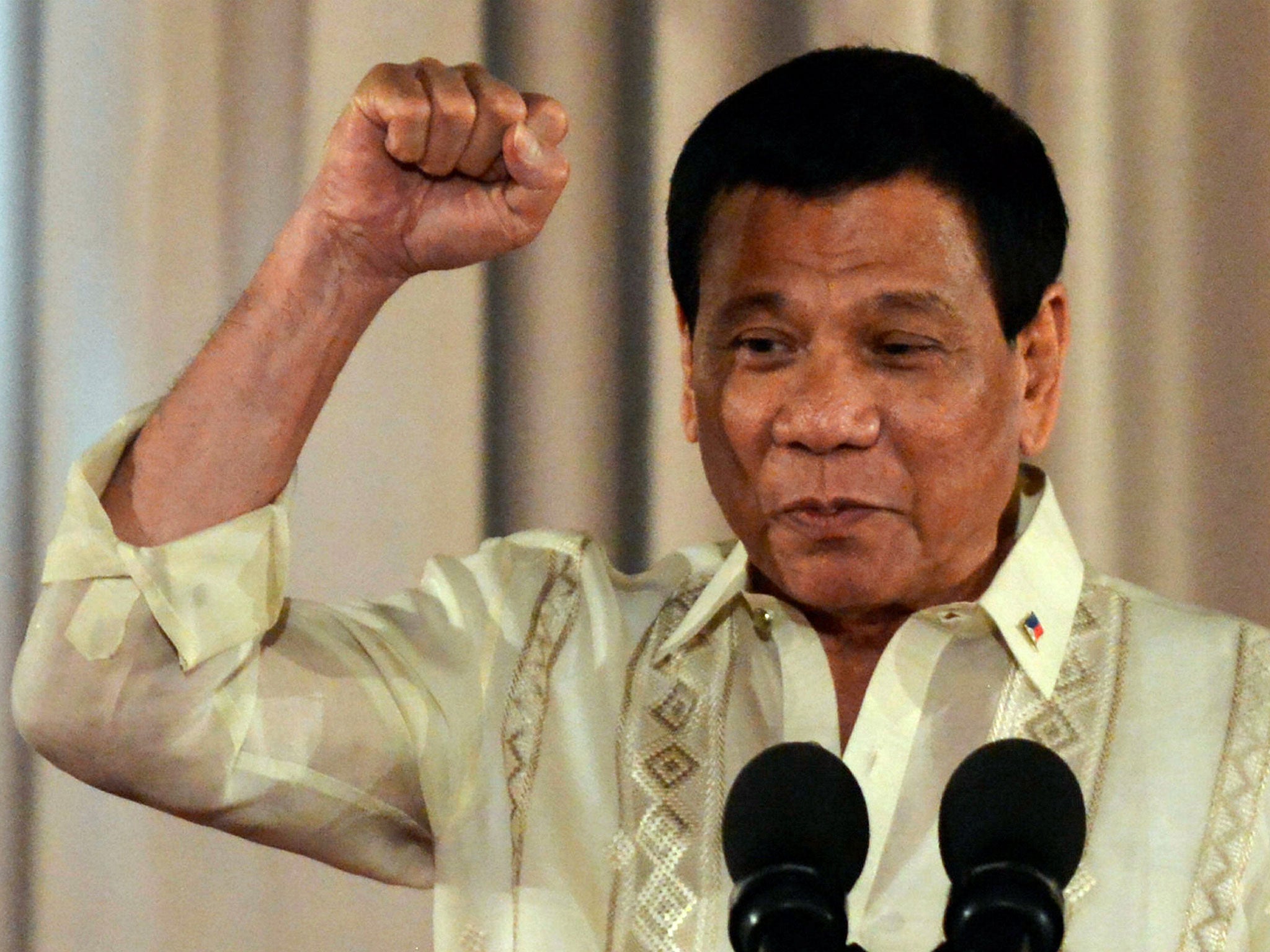More than 1000 suspects killed per month in Philippines drug crackdown in 'possible crimes against humanity'
President Rodrigo Duterte has suggested he could bring in military to help in war on drugs

More than 7,000 people have been killed in the Philippine’ government’s “war on drugs” since President Rodrigo Duterte came to power in a campaign of murder that could amount to crimes against humanity, according to a new report from Amnesty International.
The advocacy group said it equated to at least 1,000 deaths per month, including at least 2,500 in total where the country’s police were allegedly directly involved in the murders.
In the report, Amnesty accused police of systematically targeting poor individuals, planting evidence, recruiting mercenary killers, stealing from their victims, and fabricating official reports.
And it said that the systematic state killing of alleged drug offenders, apparently planned and orchestrated by the authorities, could amount to crimes against humanity under international law.
Amnesty’s report, entitled “If you are poor you are killed: Extrajudicial Executions in the Philippines’ War on Drugs”, comes as Mr Duterte withdrew the police from his anti-drugs campaign, handing the job to a much smaller anti-narcotics agency.
Mr Duterte is furious with the Philippine National Police (PNP) for the kidnap and killing of South Korean businessman Jee Ick-joo by police drugs squad officers, which prompted an international scandal. Mr Jee was killed within the grounds of the PNP headquarters.
The Philippine Drugs Enforcement Agency (PDEA) would run anti-drug operations, according to presidential spokesman Ernesto Abella. Its 1,800 staff are equivalent to just over 1 per cent of the 160,000-strong PNP.
The President suggested he may seek military support to make up the difference. In a speech to soldiers, Mr Duterte suggested he might need their help, saying he would be dead “if I don't include you in the game”.
The attack on the PNP is a surprise about-face by Duterte, who had been unwavering in his support for police on the front lines of his drugs war.
His spokesman said the president was fully aware of PNP corruption when he gave police the lead in fighting narcotics, but the drugs problem was so big that he had no other choice.
“The president had to act, he did act, to enforce his political will,” Mr Abella told a news briefing.
Amnesty’s report involved an investigation into 33 cases that involved the killings of 59 people. Researchers interviewed 110 people across the Philippines, as well as examining documents, including police reports.
The report claims the police, working from unverified lists of people allegedly using or selling drugs, stormed homes and shot dead unarmed people, including those prepared to surrender.
Fabricating their subsequent incident reports, the police routinely claimed that they had been fired upon first, according to Amnesty. In contrast to the police’s claims, witnesses told Amnesty how the police conducted late night raids, did not attempt an arrest, and opened fire on unarmed persons. In some cases, witnesses said that police planted drugs and weapons they later claimed as evidence.

Tirana Hassan, Amnesty International’s crisis response director, said: “This is not a war on drugs, but a war on the poor. Often on the flimsiest of evidence, people accused of using or selling drugs are being killed for cash in an economy of murder.
“Under President Duterte’s rule, the national police are breaking laws they are supposed to uphold while profiting from the murder of impoverished people the government was supposed to protect.
The PNP and Mr Duterte strongly reject claims that police have been involved in widespread extrajudicial killings.
And one senior policeman told Reuters the PNP’s resources had been shifted away from raids and sting operations to reining in wayward officers, especially those reinstated following internal investigations.
“The cleansing process will take a front seat by strengthening our counter-intelligence operations, checking lifestyles of police officers involved in drug operations,” said the officer, who requested anonymity because he was not authorised to speak to media.
“This is a huge job. I'm not sure how long will it take to do this because our Internal Affairs Service lacks manpower.”
Additional reporting by Reuters
Join our commenting forum
Join thought-provoking conversations, follow other Independent readers and see their replies
Comments
Bookmark popover
Removed from bookmarks